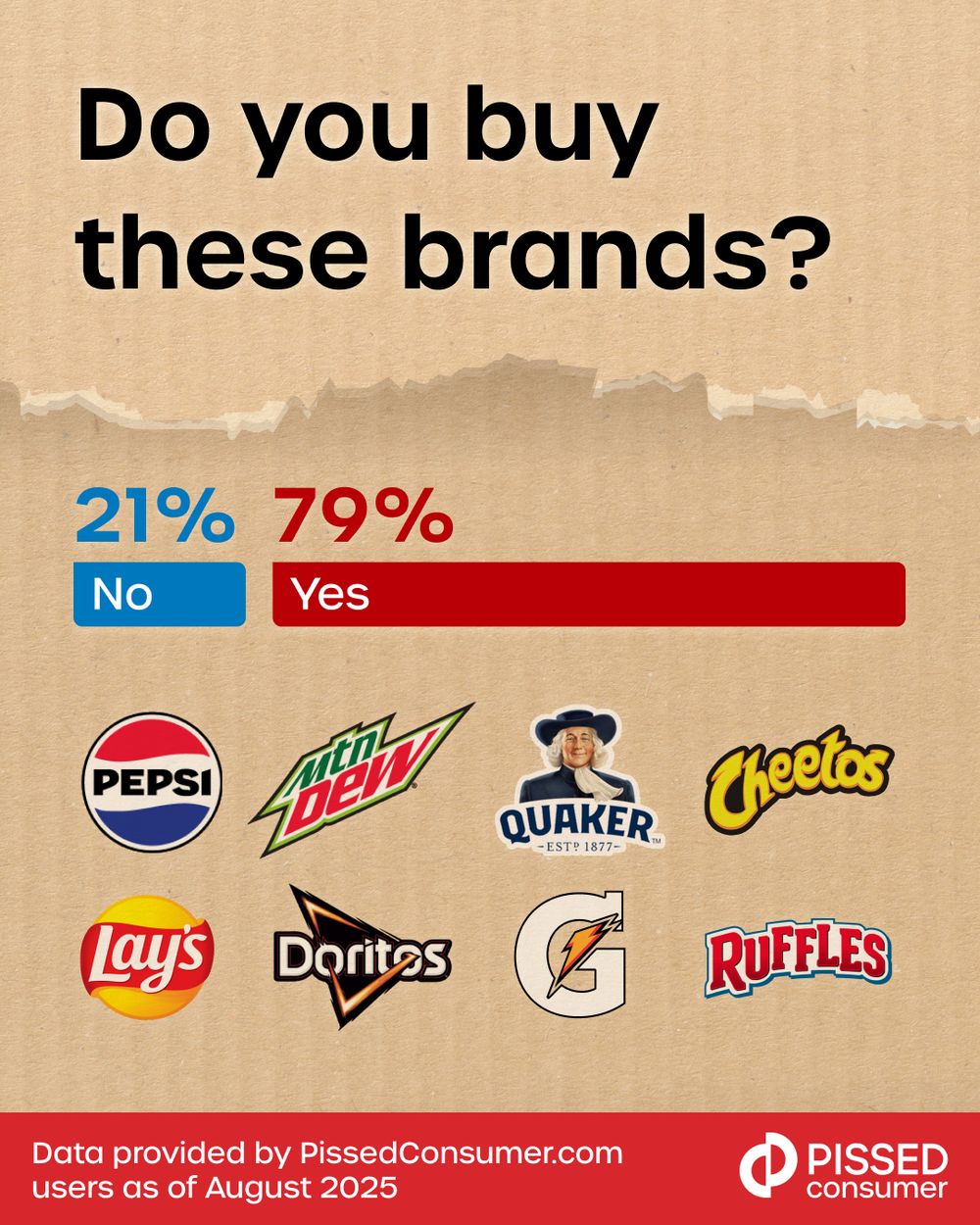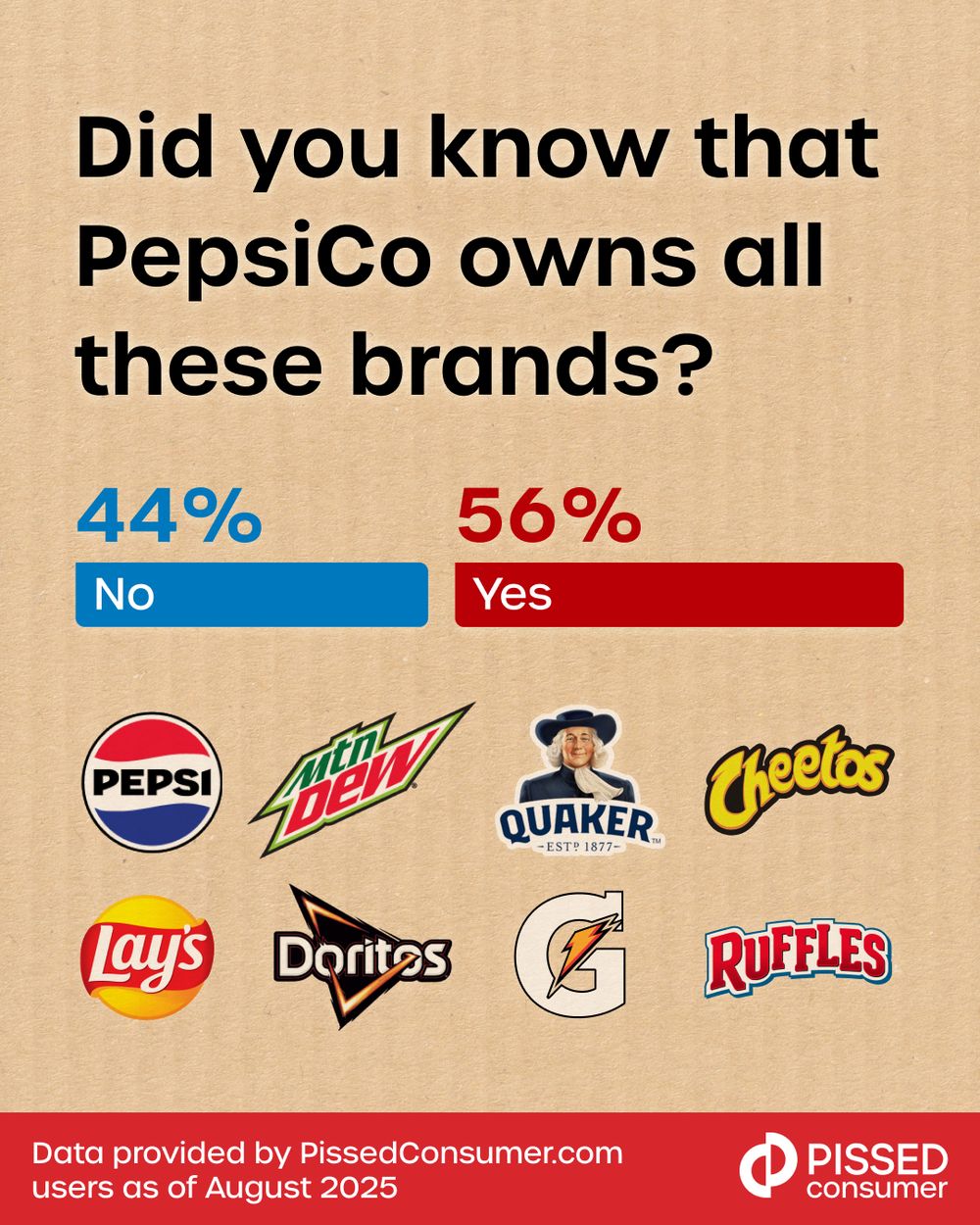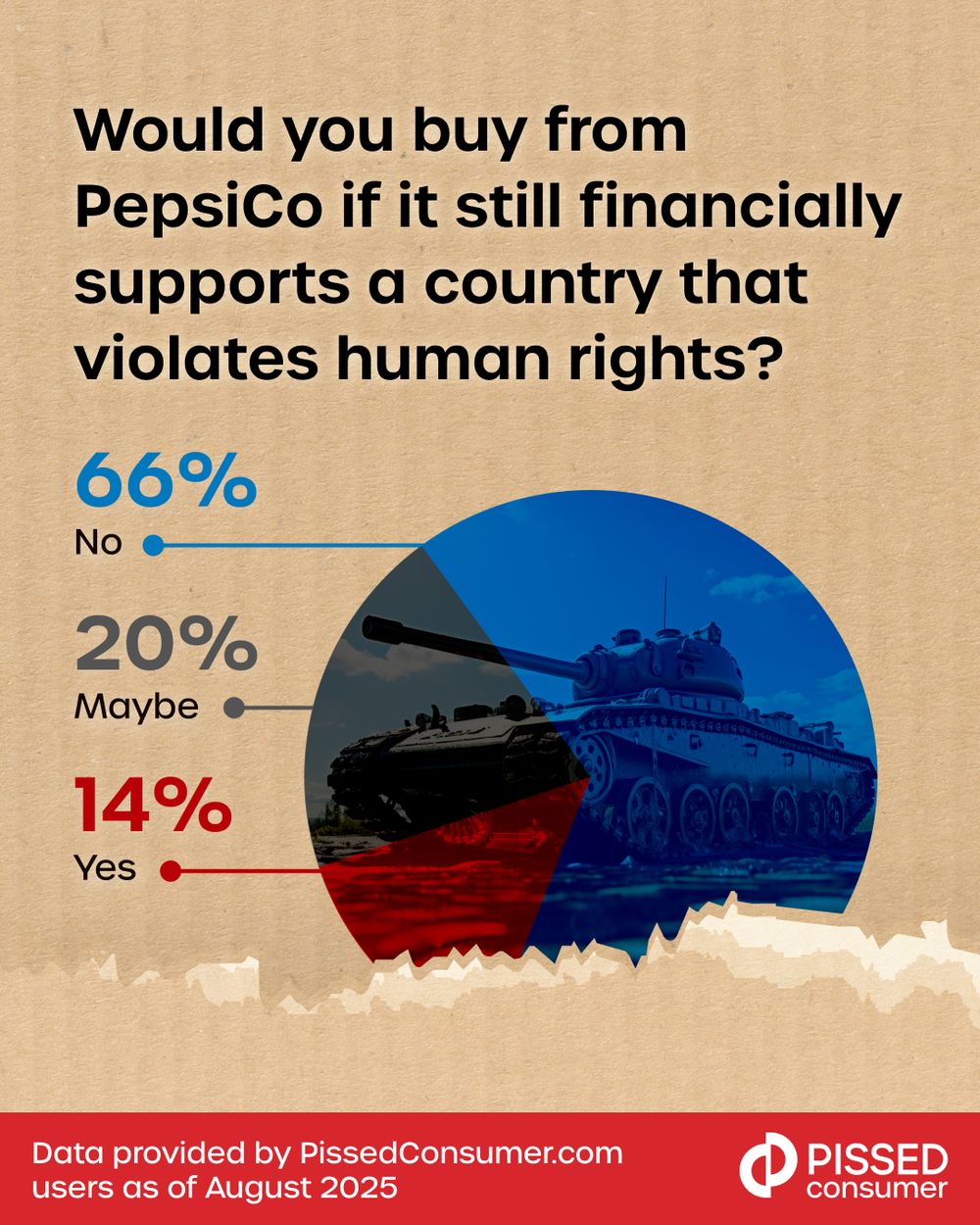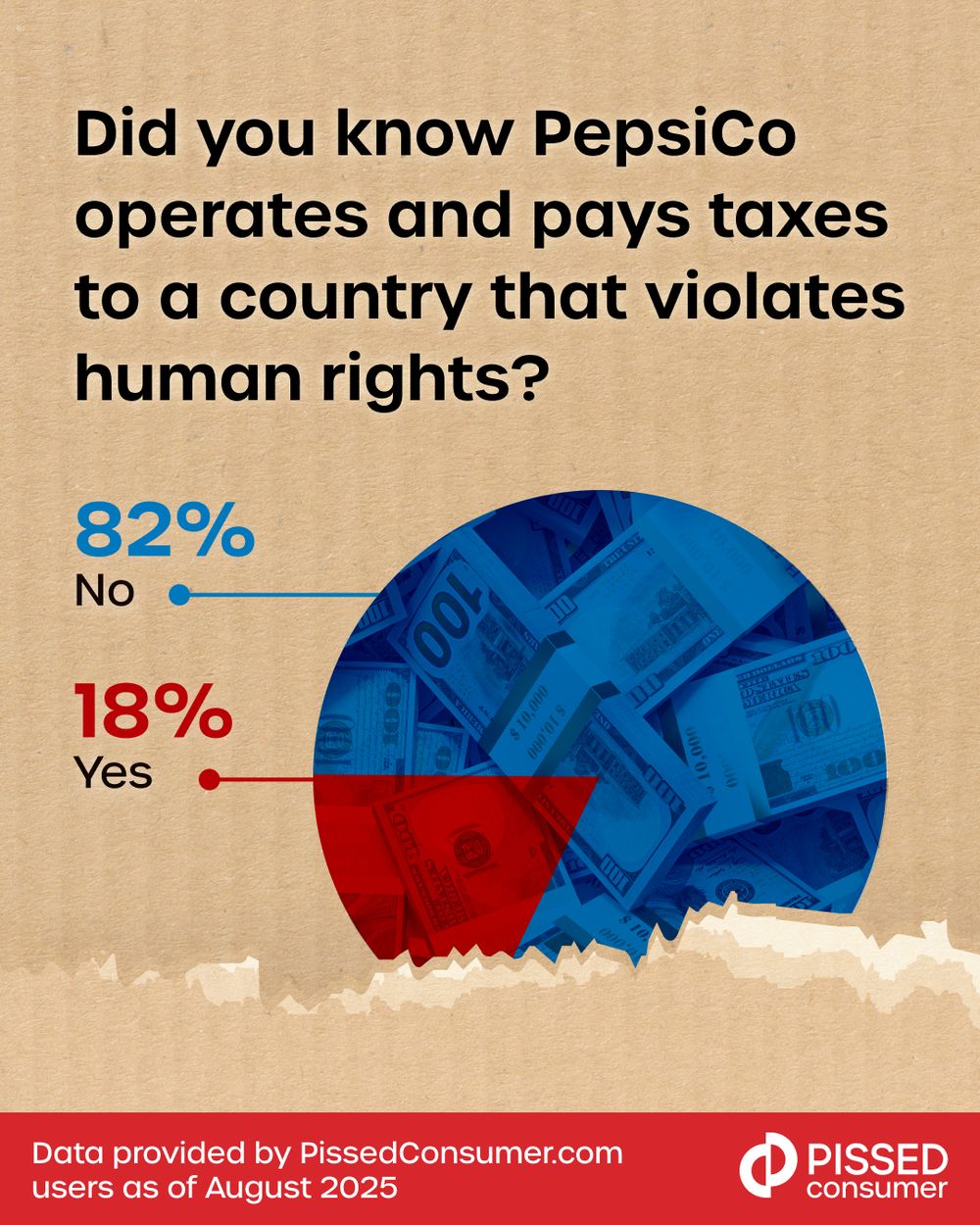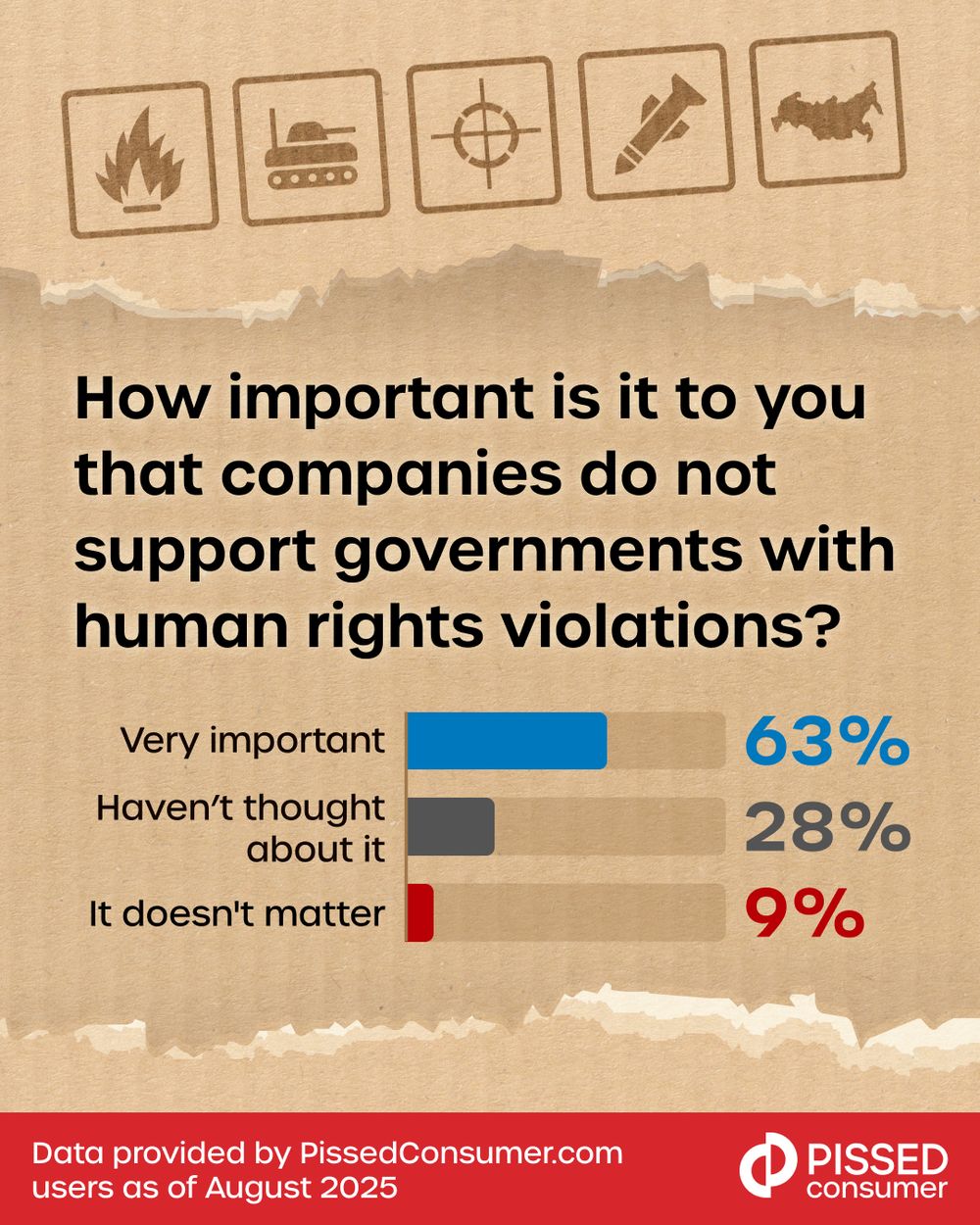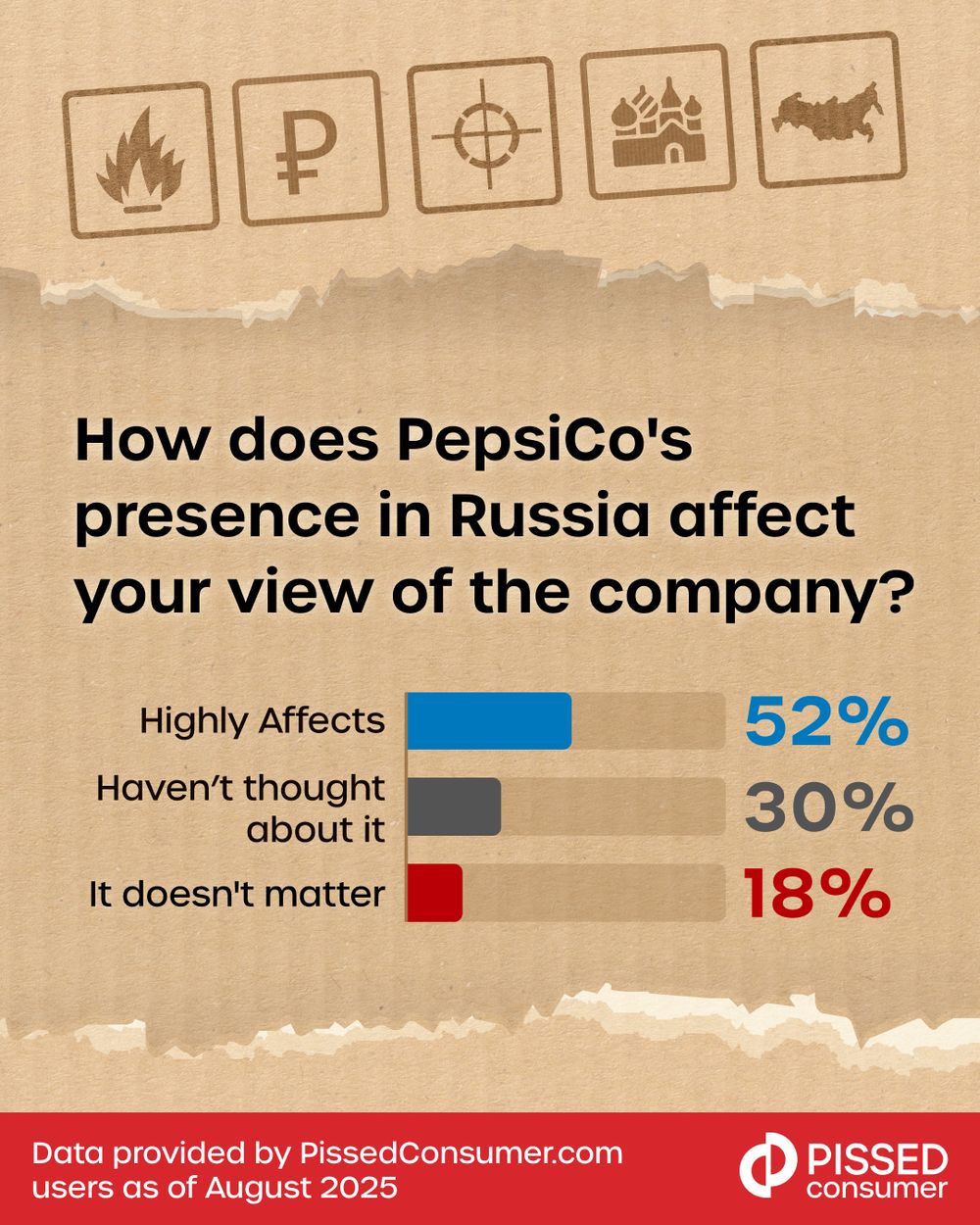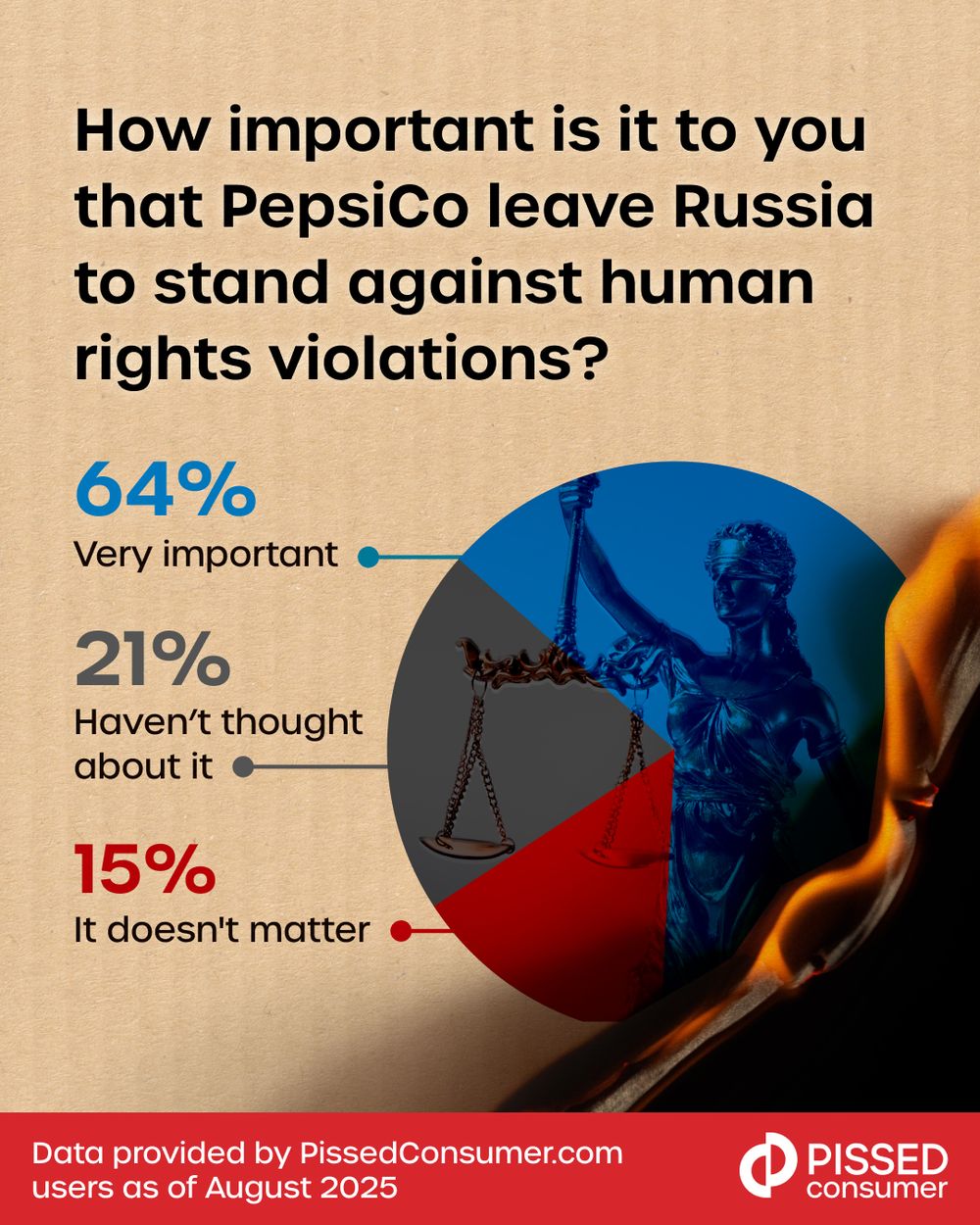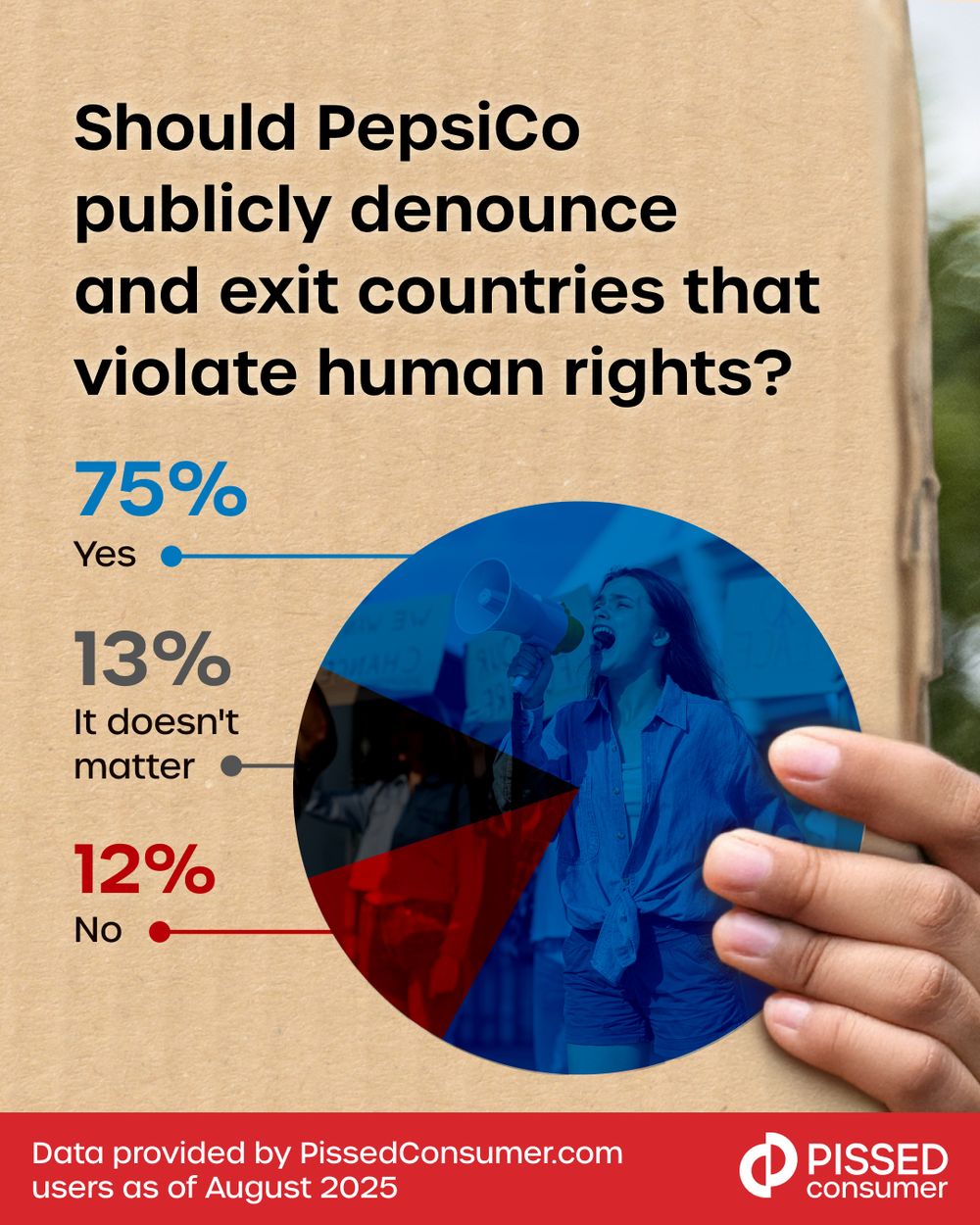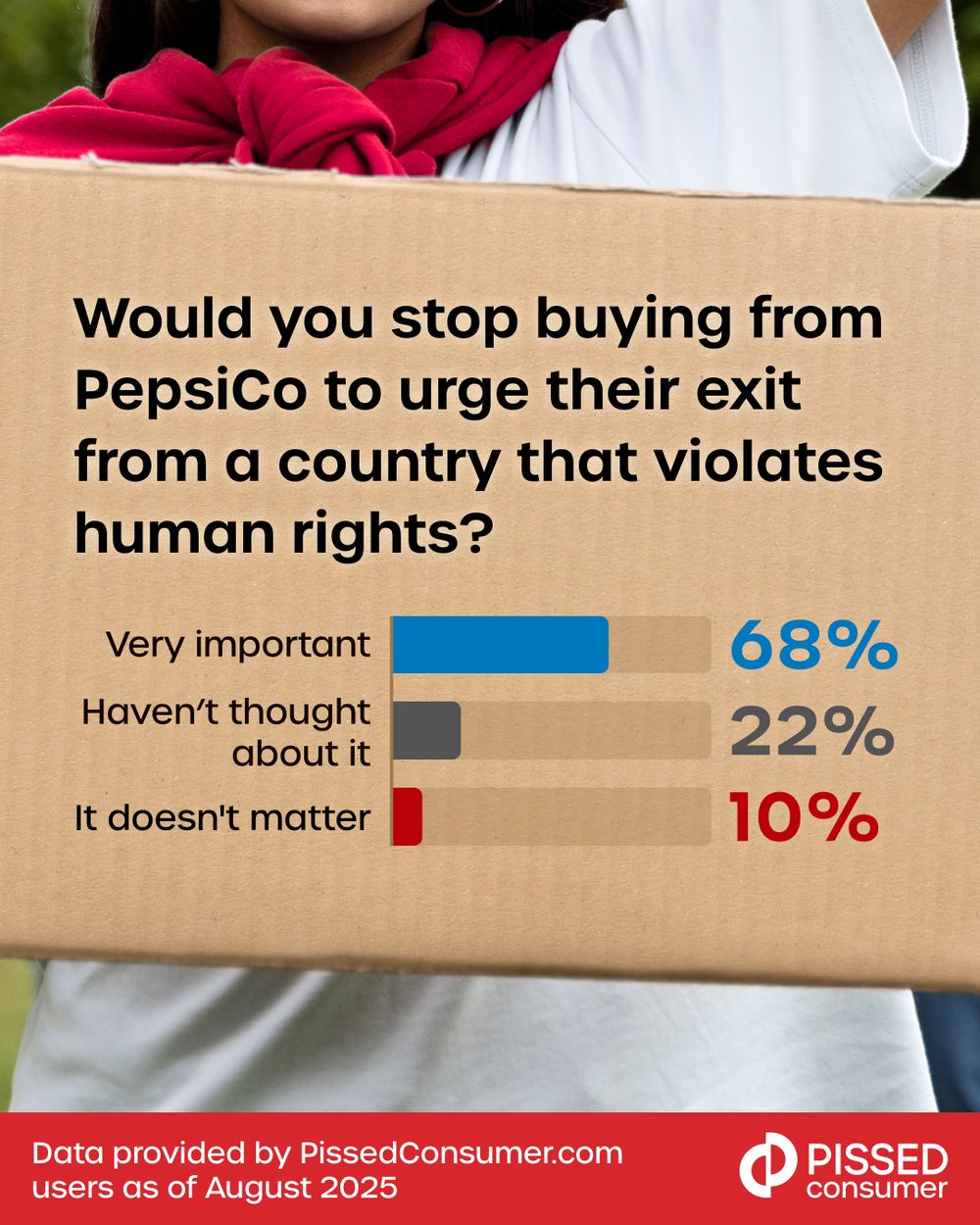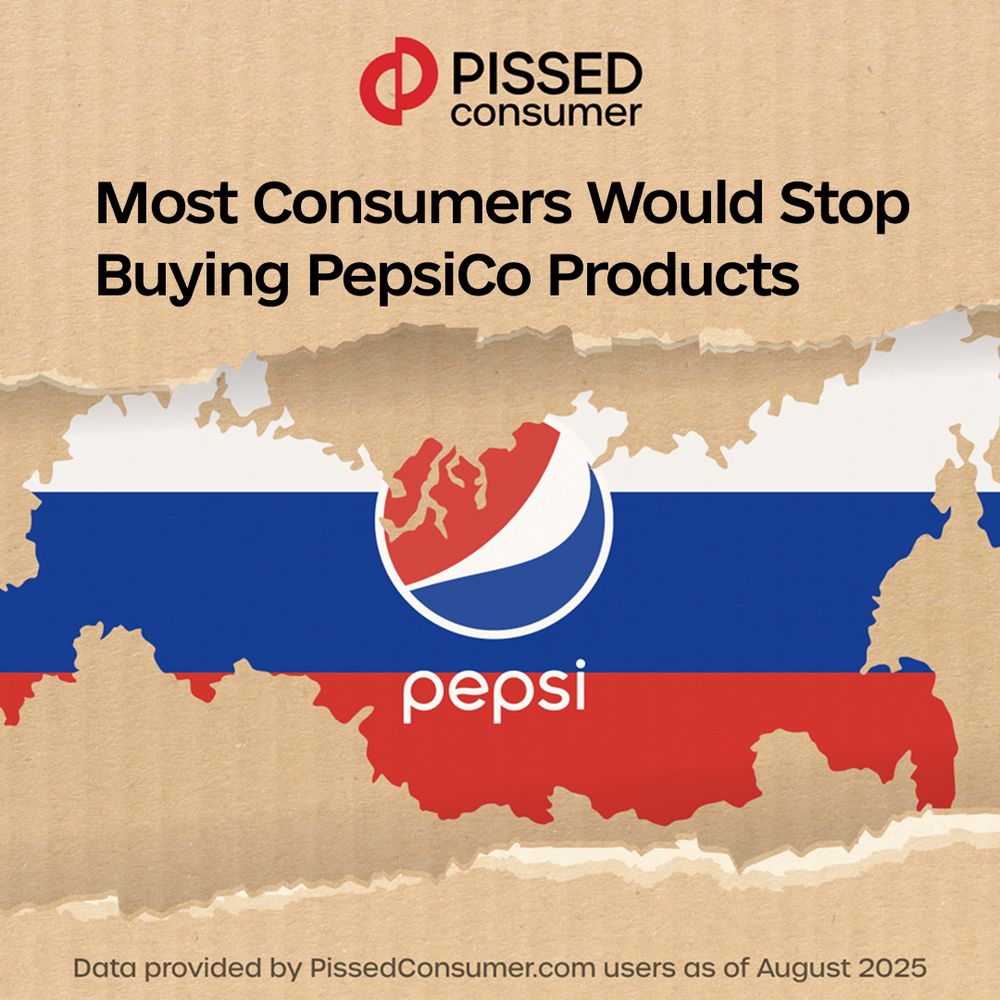
When doing the weekly shop, we all reach for the familiar brands – the reliable household names we know and trust. But what if these brands indirectly supported states that committed human rights violations? Would you think twice?
Maybe it’s concerning? Maybe irrelevant? The latest survey by PissedConsumer, a member of the B4Ukraine Coalition, investigates how consumers feel about corporate social responsibility and the transparency of brands, with a focus on PepsiCo’s endeavors in Russia.
What can we learn from the results?
Almost Half of Consumers Are Unaware That PepsiCo Is Behind Many Brands
78.6% of the surveyed consumers buy PepsiCo-owned brands, yet 44.4% are unaware that the company is behind many of their favorite products (Mountain Dew, Gatorade, Cheetos, etc.). This disparity could be attributed to a lack of transparency and highlights a serious issue – many consumers do not really know who or what they are supporting when they make a purchase.
Most Would Not Buy From Companies That Operate in Russia
The survey shows that the vast majority would pause if they knew a business was active in Russia, and more than half would refuse to buy from them at all. PepsiCo is operating in Russia, still employs approximately 60,000 people across 19 production facilities in the country, and contributed $122 million in profit tax to the Kremlin in 2024. However, 81.8% of those surveyed are unaware that the company pays taxes to a state that participates in violating human rights.
Awareness plays the key role in attitudes. Knowing that such actions are supported by their purchases, most shoppers (65.7%) will cease buying from the brand.
Shoppers Don’t Want to Support Brands That Finance Human Rights Abuse
The share of purchases made on the basis of ethical interests is increasing, and the PissedConsumer survey confirms that consumers do care about whose hands their money ends up in.
62.9% of respondents stated that it is very important that brands they buy from do not support governments that break human rights obligations.
Awareness of Company Activities Impacts Brand Perception
52.3% say the knowledge that PepsiCo is still operating in Russia has influenced their view of the company. This is not unusual. Other notable multinationals, such as Procter & Gamble and Mondelez International, have met with criticism for their perseverance in the Russian market.
Pointedly, 64.2% believe that PepsiCo should abandon Russia altogether as a clear stand against human rights crimes, whereas 74.7% think that they should not just halt operations in these countries immediately, but publicly denounce their human rights record.
Consumers are telling companies that they expect more than neutrality on such matters. They expect explicit commitment to a morally and ethically supportable stance.
Most Consumers Would Stop Buying PepsiCo Products
According to the survey, most consumers would stop purchasing PepsiCo products to persuade them to exit a country that violates human rights.
Alone, negative public opinion may not be enough to prompt a change of course. The knock-on effects of poor brand perception and reputation damage are serious, yet businesses will attempt to mitigate this through rebranding, incentives, and assorted retention strategies. However, a lost customer is lost revenue, and winning them back again is a lot more difficult than keeping them happy.
Many consumers realize that the only language many companies will understand is the dollar. 68.4% say that they will stop buying PepsiCo products to voice opposition to the brand’s participation in economies that practice human rights violations and as a means to persuade them to reconsider their positioning.
The Public Response and Reputational Risks for PepsiCo
The public reaction to multinationals that profit from repressive states serves as a warning of the reputational and financial risks of controversial conduct. Conduct that consumers see as incompatible with their values.
The survey results suggest that a poor commitment to transparency leaves some consumers in the dark about corporate ties, evading the increasing demand for greater corporate responsibility.
Responsibility in terms of ethics and reflecting consumer opinion on humanitarian matters is growing as a major driver of purchasing decisions, and the suggestion is that brands are expected to not just remain neutral, but use their elevated position to fly the flag for humanitarian causes.
Survey methodology
PissedConsumer.com, a review and reputation management platform, surveyed 1169 respondents from the United States (76.9%), Canada (10.4%), the United Kingdom (8.5%), and Australia (4.2%). Participant age ranged from 18 to 65 (with the majority (58.6%) being amongst the 18-24 age bracket), with an even gender distribution. The survey requested consumer opinion regarding corporate operations in countries with poor human rights records, focusing on PepsiCo as a case study. The online survey was carried out in August 2025.
